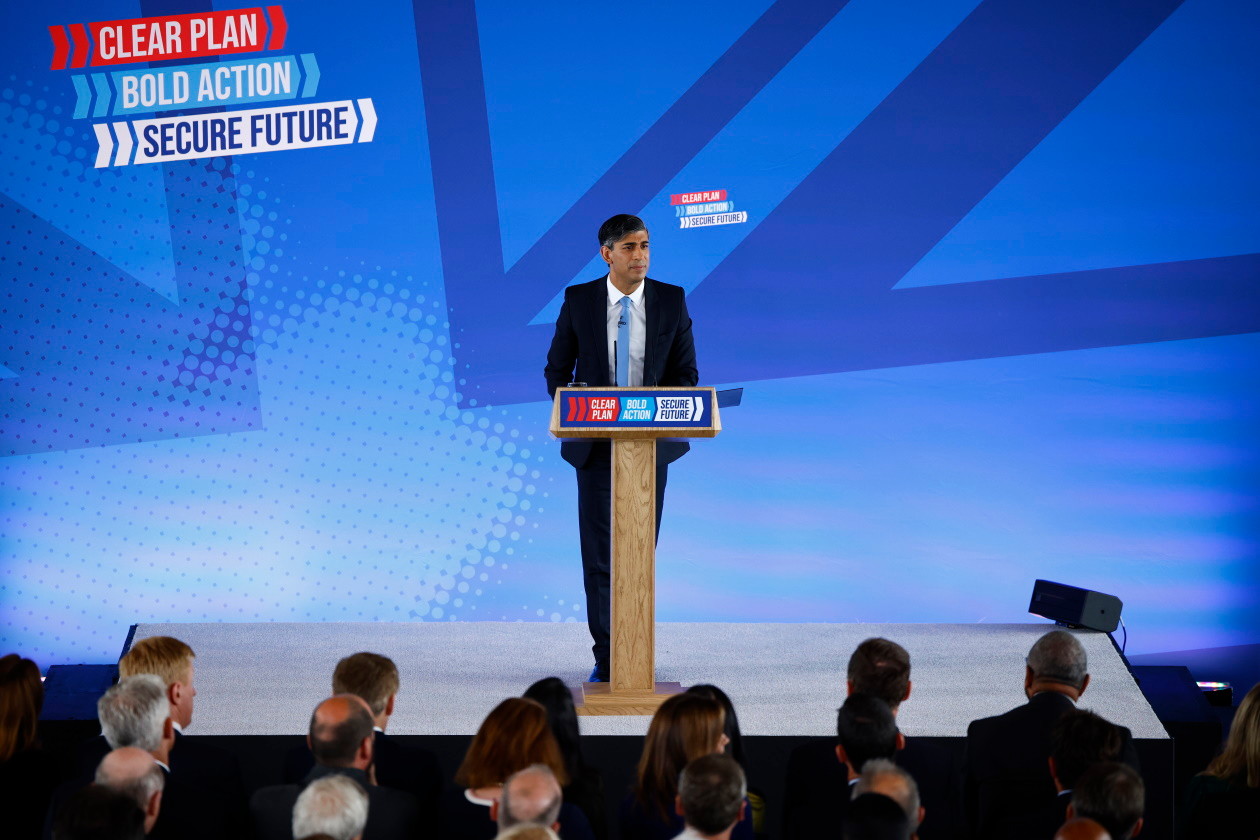Today, the Conservative party released their manifesto for the 2024 General Election.
Here are the main takeaways and what it could mean for your money.
This article isn’t personal advice. Pension, ISA, and tax rules can change, and benefits depend on your circumstances. All investments can rise and fall in value so you could get back less than you invest. If you’re not sure what’s right for you, seek advice.
Get our latest insights on what the General Election could mean for you and your money.
Pensioners would be better off
Pledges to maintain the triple lock came early in the campaign, but in a major rabbit-out-of-the-hat moment, the Conservatives went one further with the ‘triple lock plus’.
Under the pledge, the personal allowance for pensioners will rise every year, meaning they won’t pay tax on their State Pension. It’s a strong response to the issue of frozen tax thresholds pulling more pensioners into tax-paying territory.
Under the plans, from April 2025, the personal allowance for pensioners would rise by the same level of the triple lock which would mean the full new State Pension – currently standing at around £11,500 per year – would rest below the tax-free limit.
According to the manifesto, it amounts to a tax cut of around £100 for eight million pensioners next year – rising to £275 a year by the end of the parliament.
It’s a controversial stance that will be welcomed by those who’ve had their budgets squeezed by the cost-of-living crisis. Others will question whether a State Pension system that’s already under pressure can withstand the extra cost.
There’s some certainty over pension rules
The manifesto has also moved to quell rumours that a new government might look to trim back pension perks more generally.
Pension taxes are always a tempting prospect for a government looking to save money. However, under their ‘pension tax guarantee’ the Conservatives have promised not to introduce any new taxes on pensions.
That means tax-free cash and tax relief contributions will remain untouched, bringing much needed certainty for people looking to make the most of their pension contributions.
You could pay less National Insurance – but not necessarily less tax
The key tax pledge in the manifesto is cutting National Insurance (NI) by 2p, which could save working taxpayers up to £754 each per year. The more you earn, the more you save, and someone on £35,000 will save £448 per year.
For self-employed people, the Conservatives say they would abolish the main rate of self-employed NI by the end of the parliament.
However, this doesn’t necessarily mean working people paying less tax.
The frozen income tax thresholds will still mean that as people’s pay rises, they automatically pay more income tax, and risk being pushed into a higher tax bracket.
Over 2.1 million people have already been dragged into paying income tax because of it. Another NI cut would bring down the rate of tax they pay, but doesn’t unwind the fact they’re paying this tax in the first place.
It means that even while there’s all this talk of tax cuts, there’s every chance you could end up handing over more in tax in the future.
That’s why it’s so important to make sure your finances are as tax-efficient as possible through things like ISAs and pensions, like the Self-Invested Personal Pension (SIPP).
It could be easier to buy a first property
The manifesto included a number of pledges to make it easier to buy your first home.
There was a promise to keep the temporary stamp duty holiday on homes costing up to £425,000 for first-time buyers.
It also proposed a new Help to Buy equity loan scheme – offering up to 20% towards the cost of a new-build, so buyers only need a deposit of 5%.
This scheme has made a demonstrable difference to buyers’ ability to stretch to a deposit. However, there’s also a real risk it pushes up the cost of new-builds – unwinding many of the benefits.
Currently, the average price of a new build is £388,789, which is up an eye-watering 17% in a year. Compare this to the average price of resales at £276,194 – which is down 1.8% in a year. The Conservatives have also pledged to continue the Mortgage Guarantee Scheme.
The manifesto suggests a temporary two-year capital gains tax holiday for landlords who sell to tenants. We’ll have to see whether they’re prepared to do this, or whether in an environment where prices remain robust, they chance their arm with a sale on the open market.
Plus, it’s promised to speed up the planning process to build more homes on brownfield sites in urban areas.
The Lifetime ISA (LISA) can make a significant difference to first-time buyers. If you’re under 40, you can open a LISA and get a 25% bonus added by the government on top of anything you pay in each tax year (up to £4,000). This means you could receive a £1,000 bonus each year.
We’d like to see the property limit of £450,000 tied to house prices, to make sure nobody’s forced out of the scheme through house price rises.
We also want to see the penalty for early withdrawal for any reason other than buying a first property be cut to 20%. That way it effectively just removes the government bonus, without taking a chunk of people’s savings too.
Parents could get more support
Policies for parents had already been announced in the 2024 Spring Budget. However, the manifesto highlighted that the roll out of free childcare for children aged nine months and over will continue – and be complete in September 2025.
The Conservatives also aim to move the high income child benefit charge to a household basis. But changing the basis of income assessment is no small undertaking, so we can’t expect transformation overnight.
There could be progress on capping the cost of social care
The manifesto committed to a multi-year funding settlement to support social care, and to act on reforms laid out in its White Paper.
This could include a cap on care costs and a more generous means test of £100,000 to qualify for some help before the cap kicks in (those with less than £20,000 pay nothing).
This would bring essential certainty, which wouldn’t just benefit those who need care, but those who are sitting on large cash hoards in high street bank accounts just in case.
It would allow older people to put that money to the best possible use instead. For some, it would mean spending on improving their quality of life right now. For others, it could mean investing in a Stocks and Shares ISA to give their money the best possible chance of growth over the long term – once the risk of having to dip in at short notice has passed.
And for some it would mean having the freedom to pass money on during their lifetime.
Commitment to the retail sale of NatWest shares
There are few details, but the manifesto has committed to the sale of the NatWest shares to retail shareholders.
We’ll have to wait to see what that sale might look like, but there’s a chance it could spark some of the ‘Tell Sid’ enthusiasm of previous sales of state-owned businesses.
Sign up to our Editor’s Choice email and we’ll send you our top stories from the week, every Saturday morning – including all our latest insights on the 2024 General Election and what it means for your money.
Article image credit: WPA Pool / Pool.


